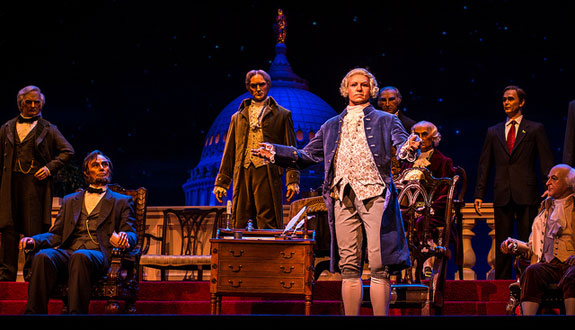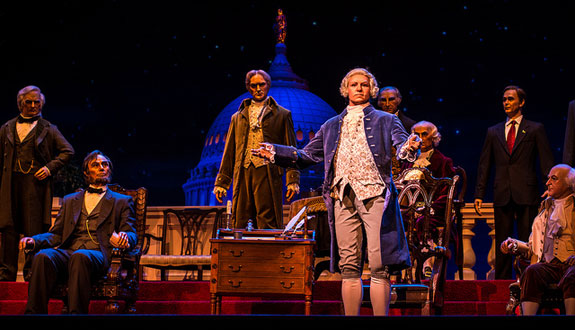How Would Presidents Have Scored on the LSAT?
- by
- Feb 19, 2015
- How Would They Have Scored on the LSAT?
- Reviewed by: Matt Riley


Here’s a President’s Day fact for you: did you know that 27 of our nation’s Commanders-In-Chief were lawyers before they were elected?
Do you know what that means? Before President Obama’s dad jokes, Bill Clinton’s scandals, or William Howard Taft’s Supreme Court appointment, each of them was an anxious law school applicant. Just like you.
What Did Presidents Get on Their LSAT?
In most cases, it’s hard to say. The LSAT has only existed in its current form since 1991 (minus the remote option and, after June 2024, the removal of Logic Games). However, armed with Google and a bit of reckless speculation, we can make some semi-educated guesses as to how they’d have performed.
The easiest to predict, by far, is Barack Obama’s score, mostly because we have some data. Based on admissions records, we can deduce — somewhat reliably — that Barry-O scored between the 94th and 98th percentile on his LSAT. Using today’s grading system, that would place him somewhere around a 170. So, add “Might help you become President” to the list of reasons why you should aim for a 170.
Further Reading
I think we can safely assume that James Garfield would’ve lit up the LSAT. He stands out as one of the few presidents (or, for that matter, lawyers) in our history who knew how to math — and boy, did he math well, deducing a unique proof for the Pythagorean theorem.
Based on his demonstrated skill in spatial-mathematical reasoning and his familiarity with a subject central to numerous Reading Comprehension passages, we can be relatively certain that Garfield would’ve scored no less than a 177 on his LSAT. Tragically, Garfield was killed after only six months in office, following a painful bout with injuries sustained during an assassination attempt.
Sign up to get expert tips and exclusive invites to free LSAT classes and law school admissions workshops!
The attack calls to mind another assassination attempt decades earlier on President Andrew Jackson. This incident ended with the aging President Jackson limping after his would-be assailant and beating him over the head with his cane while howling unpublishable indignations.
He demonstrated similar tenacity as a thirteen-year-old prisoner of war, and then as a Major General (although many of his campaigns were morally reprehensible, and likely another subject of your Reading Comprehension passages). That sort of willful determination can go a long way in LSAT preparation, however, leading me to believe that Jackson would have studied long and hard enough to score about a 175.
If you feel confident in your assessment of another President’s LSAT capabilities, chime in in the comments section!
Now imagine yourself in twenty years, about to take your oath of office. Do you want some random person on the internet to criticize your LSAT score? Of course not, so make sure you get the best LSAT score you can with the best LSAT courses from Blueprint LSAT. Our students see an average score increase of 15 points.
Get it started today by creating a free Blueprint LSAT account and getting access to a customizable Study Planner Tool, free practice exam, and more!
Search the Blog

Free LSAT Practice Account
Sign up for a free Blueprint LSAT account and get access to a free trial of the Self-Paced Course and a free practice LSAT with a detailed score report, mind-blowing analytics, and explanatory videos.
Learn More
Popular Posts
-
logic games Game Over: LSAC Says Farewell to Logic Games
-
General LSAT Advice How to Get a 180 on the LSAT
-
Entertainment Revisiting Elle's LSAT Journey from Legally Blonde








